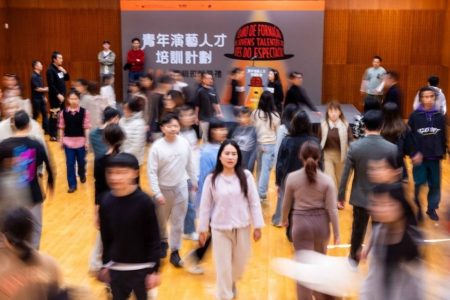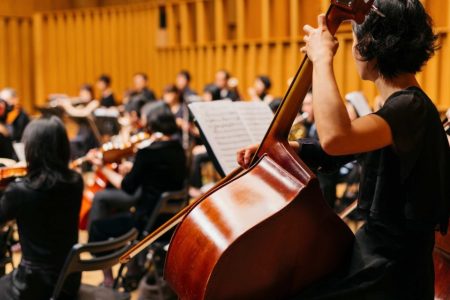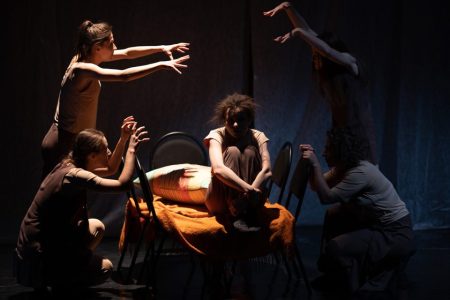In 1950s Macao, a young boy would act out an imagined conversation between two people on his way to school. When he went to the cinema, he enjoyed dissecting and reimagining the structure of the film in his head, and if money was tight, he spent his time reading Chinese literature in secondhand bookstores. This boy was Lawrence Lei I Leong, and he grew up to be an icon of the Macao arts and culture scene.
A local playwright, Lei is a co-founder of Hiu Kok, a local theatre group that was established in 1975 and known for its experimental productions that explore social and cultural themes. In May, he became the first person in Macao to win China’s Cao Yu Prize – the nation’s highest honour for playwriting – for his play Hide and Seek.
The winning play was inspired by a family homicide case which took place in Canada, where a daughter ordered hitmen to kill her first-generation immigrant Vietnamese parents. The house where this incident took place is merely a few blocks away from where Lei’s own daughter lives in Toronto.
[See more: Macao playwright Lei I Leong wins China’s highest honour for playwriting]
Hide and Seek explores the factors – such as someone’s psychological state, and cultural and generational differences – that could compel someone to commit such a crime, and delves into the complexities of human nature. Lei tells a gripping open-ended story of an unbridgeable rift of cultures, values and ethics between a mother from Macao and her daughter who grows up in Canada.
Macao News reached out to Lei to find out more about his inspirations, his thoughts on Macao’s theatre scene and what his plans for the future are.
Answers were originally given in Cantonese and have been edited for clarity.
Macao has influences from the East and West. Have you experienced or observed any unique challenges that local families face? How has that inspired your play?
Yes, Western culture has had a huge impact on our society. Macao used to have very traditional ideas of what a family is. For example, in the past, it was normal for three generations to live together, and when the children grew up, they were expected to look after their parents. Nowadays, we tend to only have nuclear family units. Who will look after the ageing parents? It’s now the norm to live separately from your parents and it’s generally accepted for aging parents to go into care homes. However, there are still ageing parents nowadays that can’t accept this cultural change, which creates a difficult situation.
When you get older, what is more important to sustain your quality of life? Your kids or money? There’s a Cantonese saying that goes “Having one’s own money is safer than relying on one’s children.” My play explores these questions.
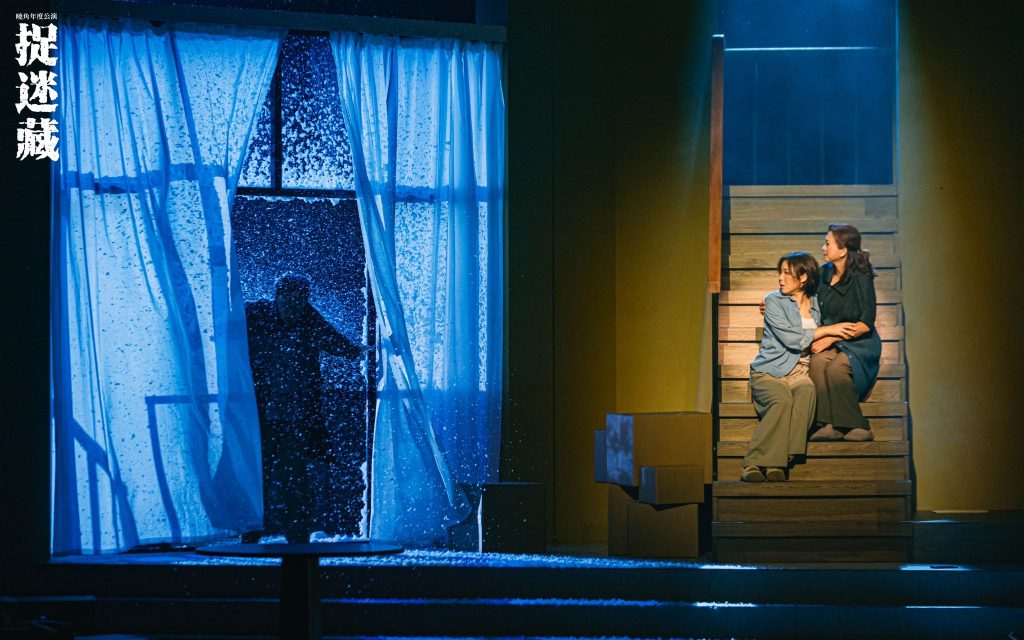
Can you share a moment during the research and writing process that surprised you or changed your perspective on the story?
When I start planning a play, I never have a concrete outcome in mind. I always leave the ending open to interpretation, because I believe the purpose of a play isn’t to give the audience answers. Rather, a play’s greatest value is to create questions that encourage the audience to contemplate and reflect on the topic.
I spoke to many friends who have immigrated and many scenes were inspired by their experiences. I had a lot of questions that I wanted to explore myself. The Chinese community in Toronto was shaken by the homicide case as the daughter’s actions went completely against our traditional values. Children should look after and respect their parents, so it was utterly inconceivable for a daughter to hire hitmen to kill her own parents.
[See more: Six local performing arts productions have been awarded IC grants]
The news said that the daughter killed them to inherit their money, but I questioned whether her motive was that simple. What else could cause a child to kill their parents? The parents are first generation Vietnamese immigrants – could there be a clash between Eastern and Western cultural values? Generational differences?
You have written over 50 original plays in your lifetime. Why are plays your preferred medium?
I like both fiction and drama. However, drama allows you to see the reaction of the audience immediately, and it also involves another layer of creation through the role of the director and the participation of actors.
Although I have written in many forms like radio drama, translated scripts and novels, I was initially interested in writing fiction. When I was young, I would submit [my writing] to local newspapers. However, they never published my submissions, which made me feel like I had no space to express my creativity. So I turned to writing plays instead because they can be brought to life by actors. I co-founded the Hiu Kok Drama Association in 1975 to make this come true. At the time there was no other active theatre [group] and no funding, so everything depended on our ticket sales.
It was only when my plays were taking off that my stories started gaining traction too, so I began writing fiction again alongside my plays.
What is the theatre scene like in Macao now? What is missing?
There are so many theatre performances in Macau. If you pay attention, there are basically performances in Macau every week, even two performances in one week.
But the thing is, we can’t say that the theatre scene is flourishing. Why? The more shows there are, the less people are going to see them, so the market is narrowing down.
It’s strange isn’t it? There are quite a few theatre groups in Macau, that is, there are 30 active theatre groups. There are a lot of full-time actors, directors, designers, and a lot of performances, but the problem is that the audience is so small. This is what the ecology of Macao’s theatre scene is like. So why is it like this?
Of course, there are so many reasons – so many reasons that I can write an essay on them. One of the reasons is that there are too few publicity platforms. Basically, Facebook seems to be the only viable platform for us here. If you are on Facebook, you will see it, if you are not on Facebook, you will not see it.
[See more: ‘The first instrument is your mind.’ Meet cellist Lokteng Pao, Macao’s rising musical star]
Another reason is that when local productions compete with foreign productions, they are actually the ones who suffer. When the local audience chooses a show to watch, they often tend to choose bigger, foreign productions instead of watching smaller, local ones. In this case, it seems that the local theatres are at a disadvantage.
What’s one piece of advice you would give to aspiring playwrights?
Don’t give up on writing, because it’s hard. When I first started writing, no one was willing to publish my stories, but if I had given up after a few rejections then it would have been game over. If you keep writing, you will be good one day. So, when you want to be a successful playwright, the first thing you have to do is to be persistent and committed. You can’t give up on writing, you just have to write all the way through.
Although commercial success is largely out of your control, finishing a play is something that you can control.
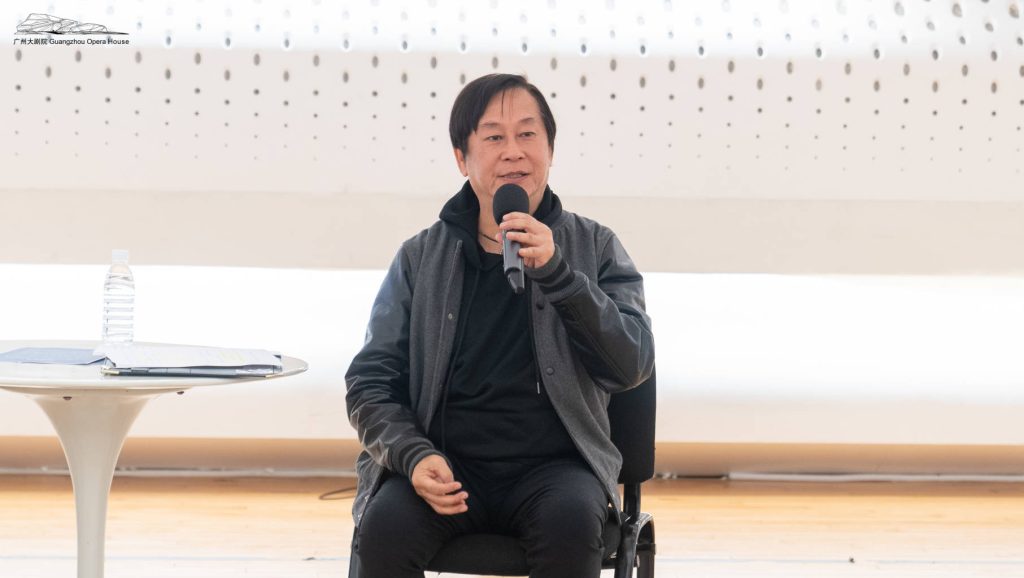
Who is your favourite playwright?
My favourites are Chinese playwright Cao Yu, British playwright Harold Pinter, American playwright Arthur Miller and the Italian playwright Dario Fo.
What is a play that has deeply influenced you?
Equus by British playwright Peter Shaffer. I like it a lot because Shaffer uses very bold themes like psychology, religion, and sex. And when it comes to the plot of the story, it’s good as well. It’s got great shock value and inspires reflection, and it’s had a great impact on my writing.
Another play that has had a great impact on me is Our Town by American playwright Thornton Wilder, because its interpretation of life is very profound.
Are you working on anything new?
I am currently rewriting a play I wrote 19 years ago called 紅顏未老 (“Beauty is Still Young”), and I am turning it into a musical. It will be performed in November in Macao. I’m also working on a musical called Operation Oops which has been selected for the IC Performing Arts Production programme.




